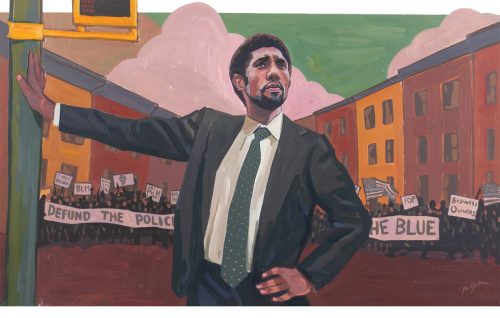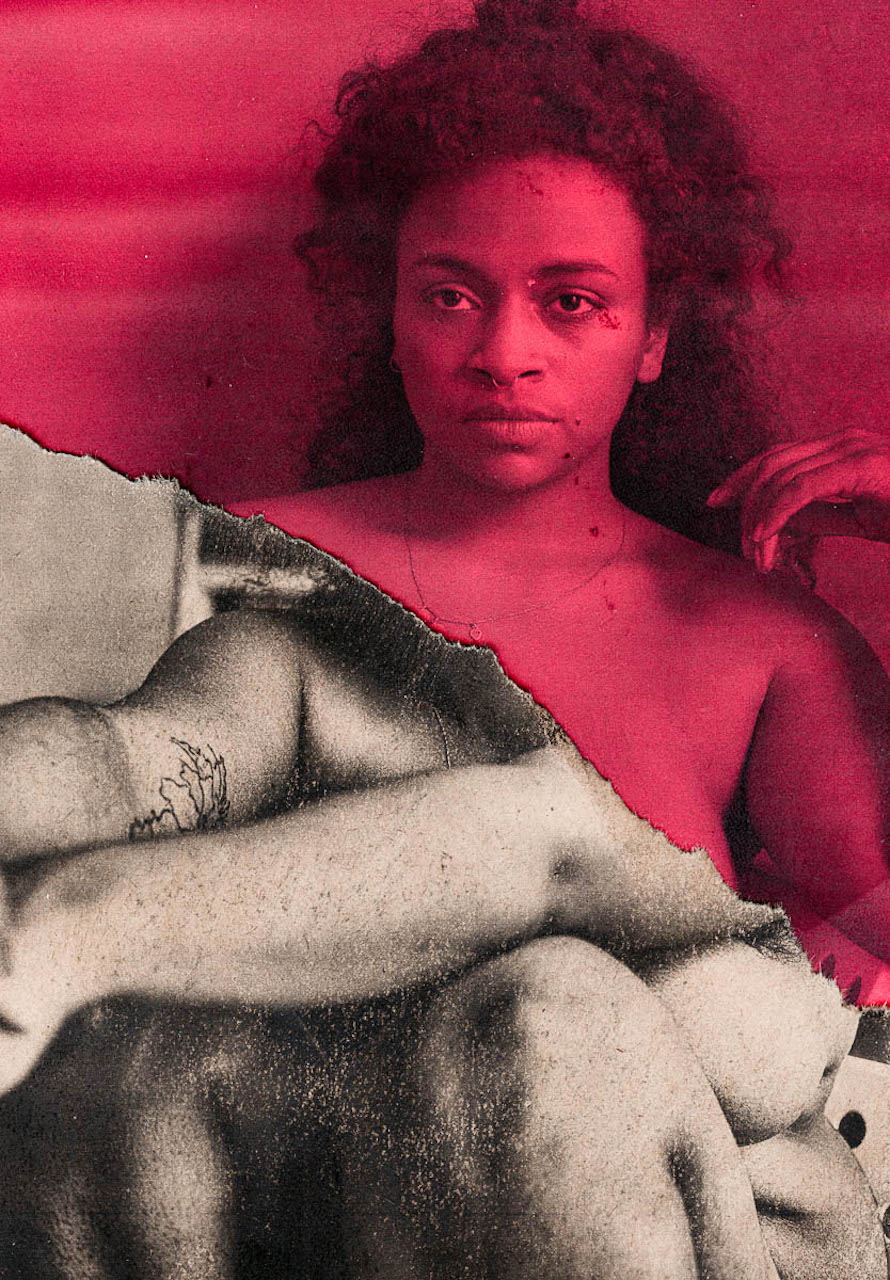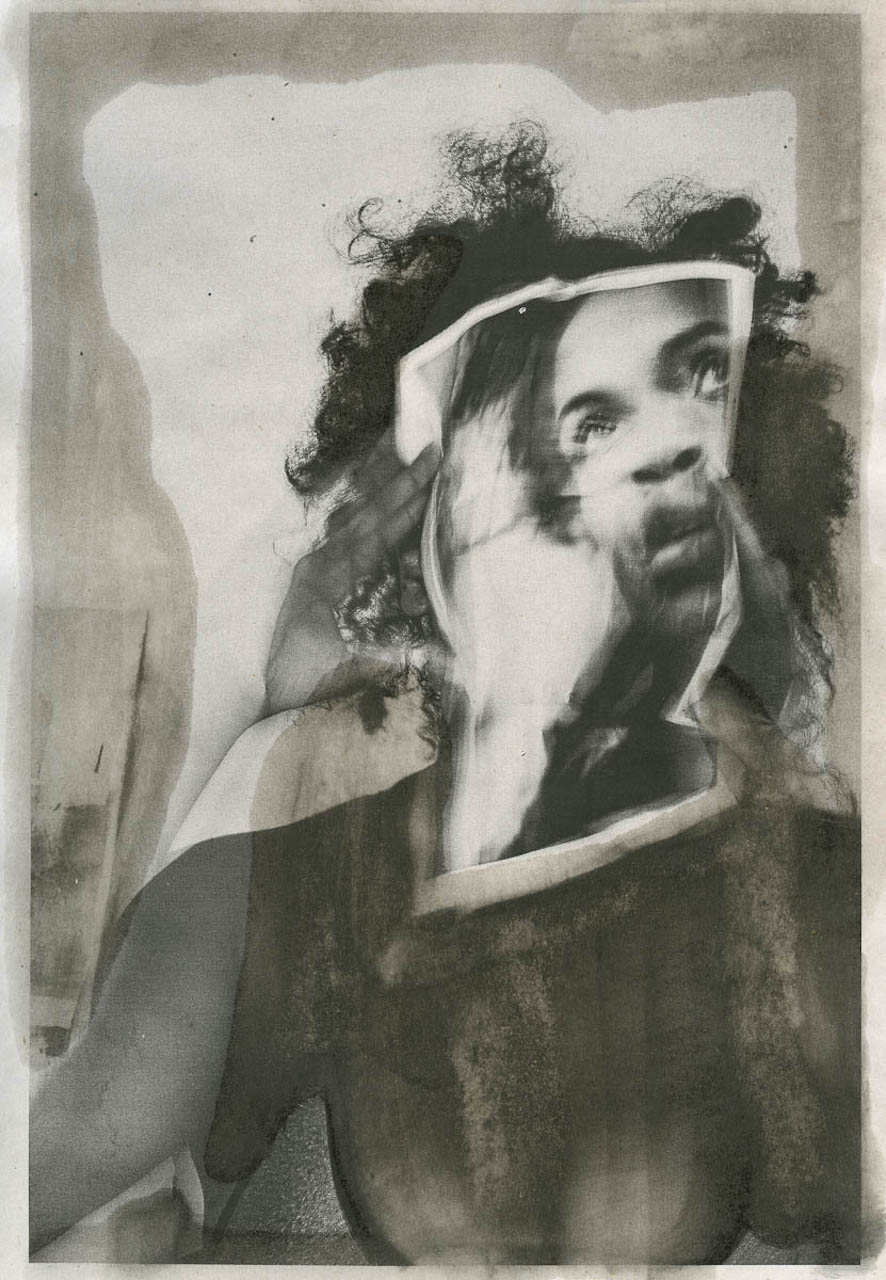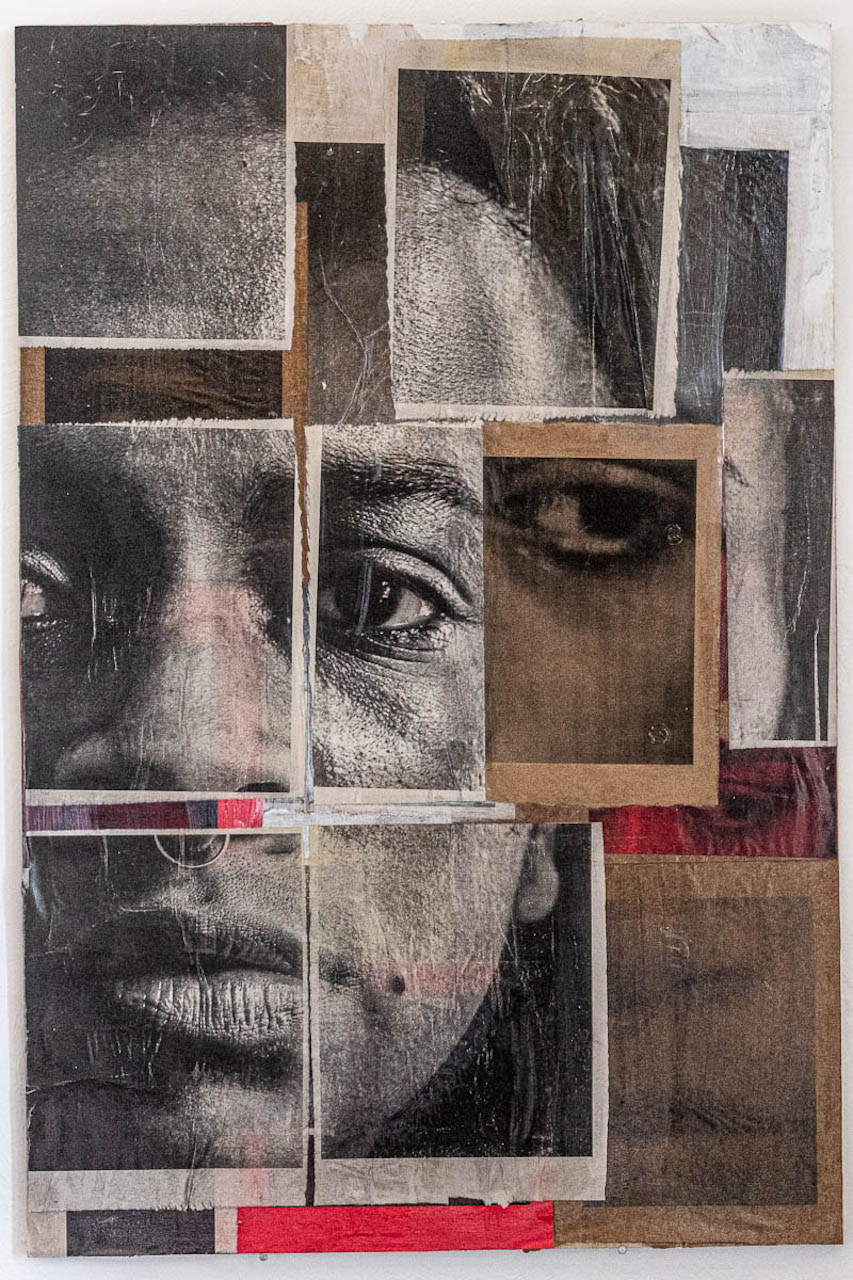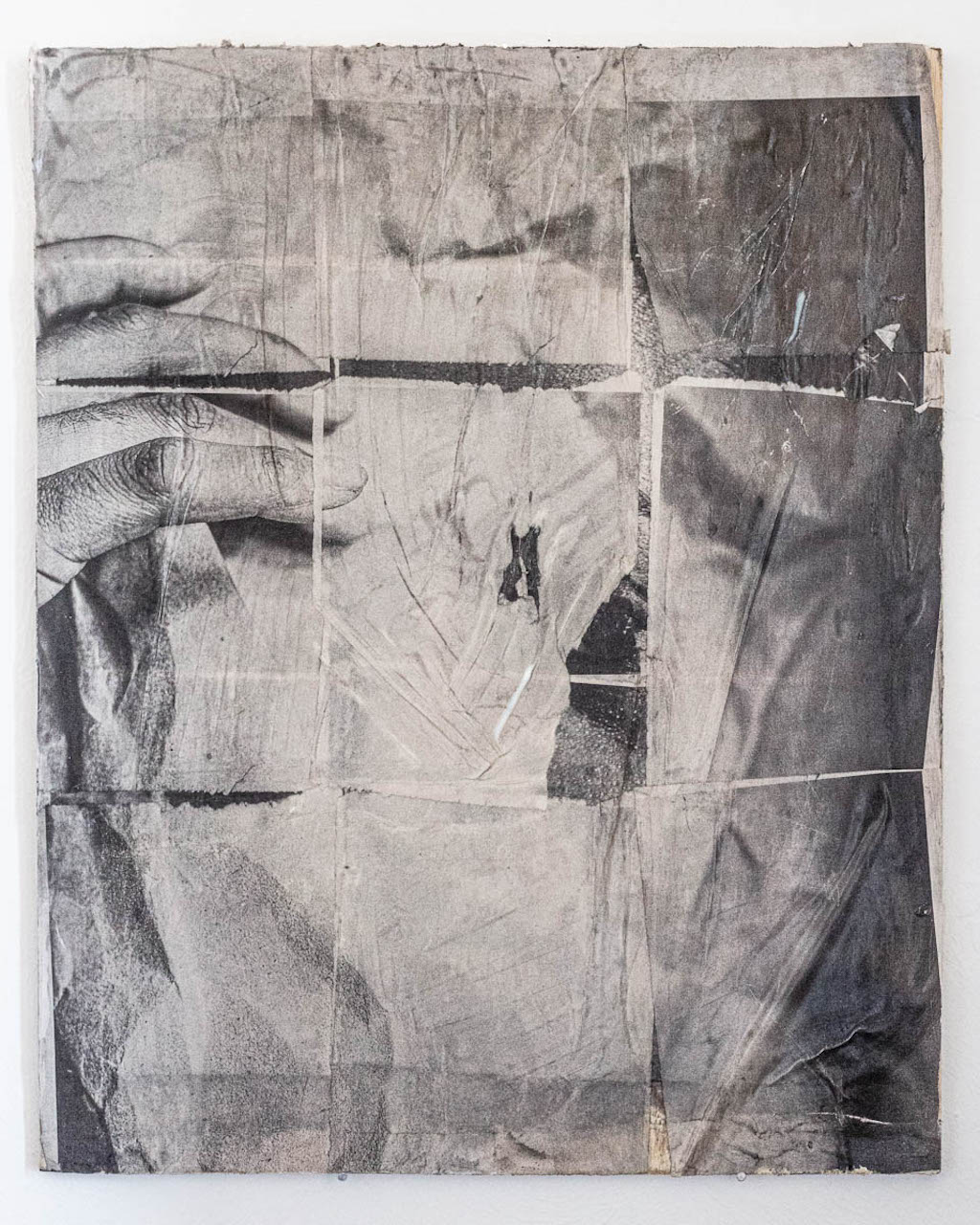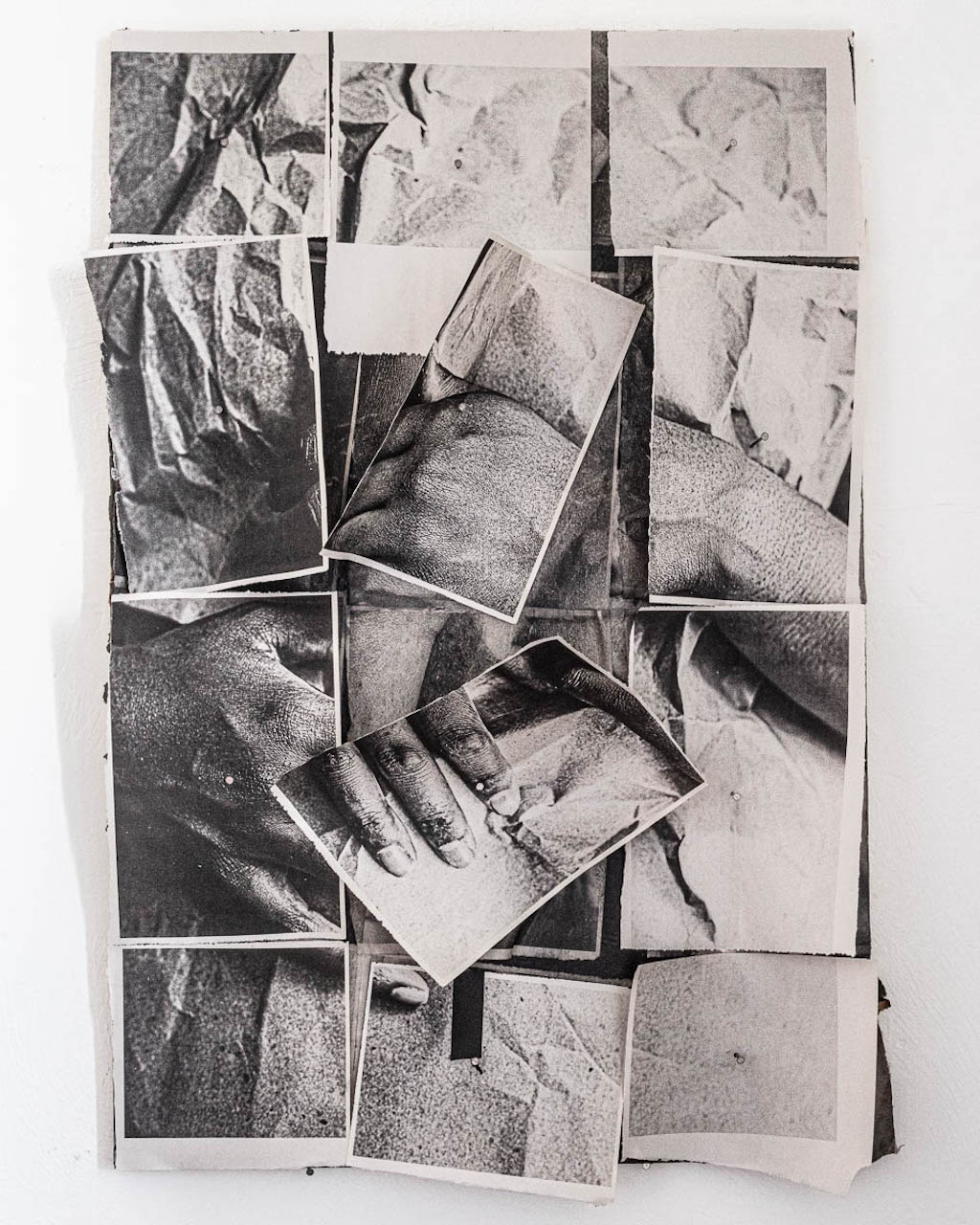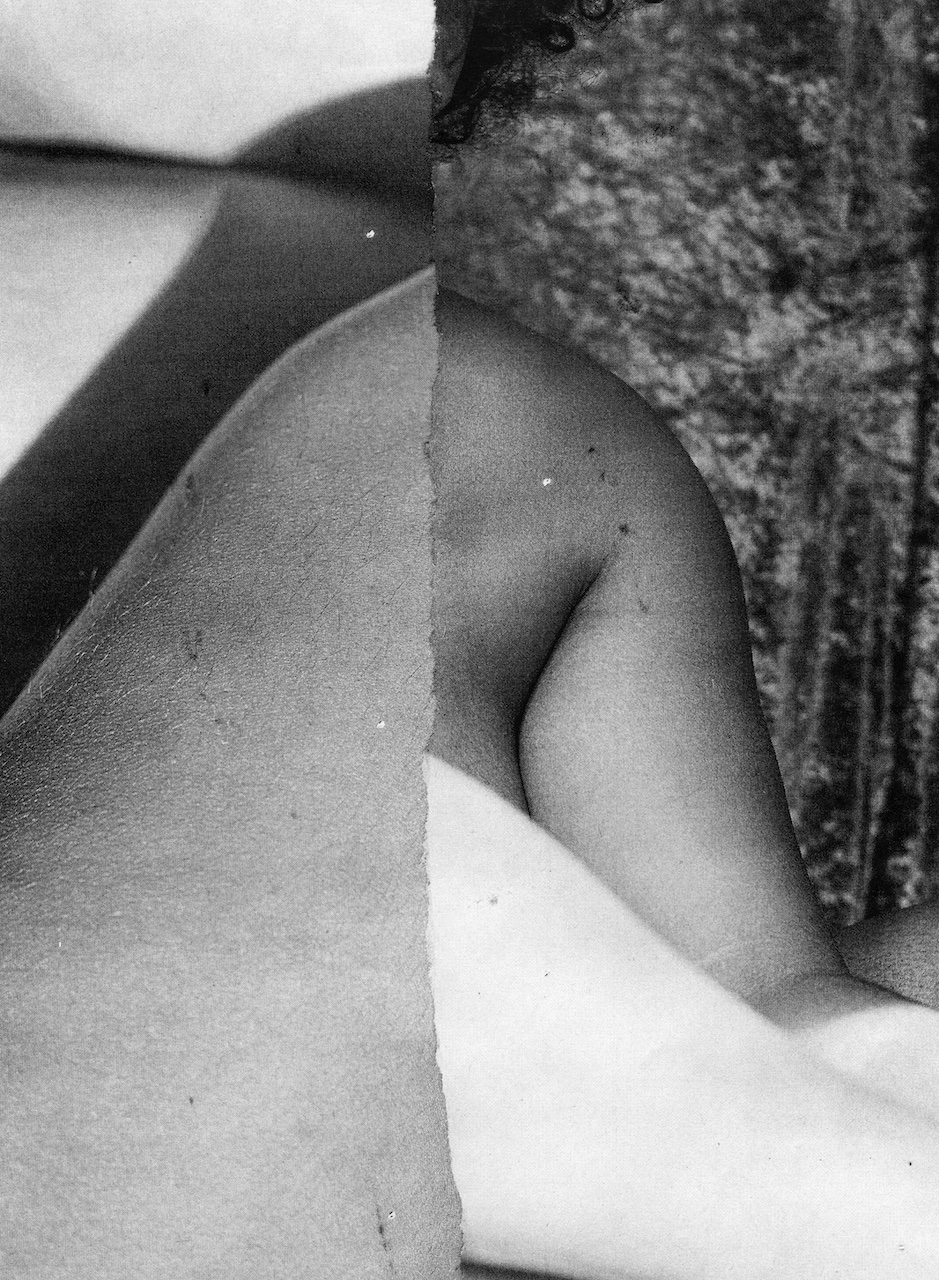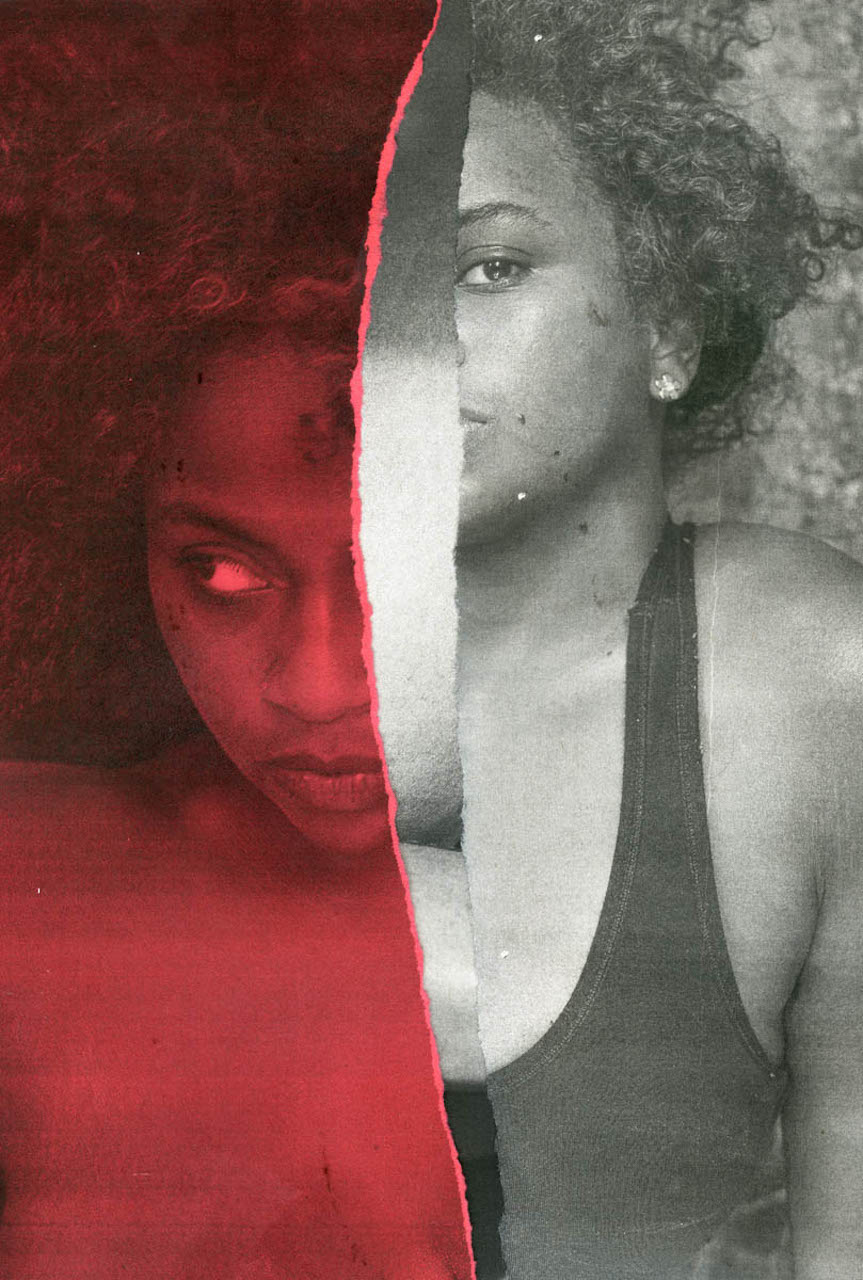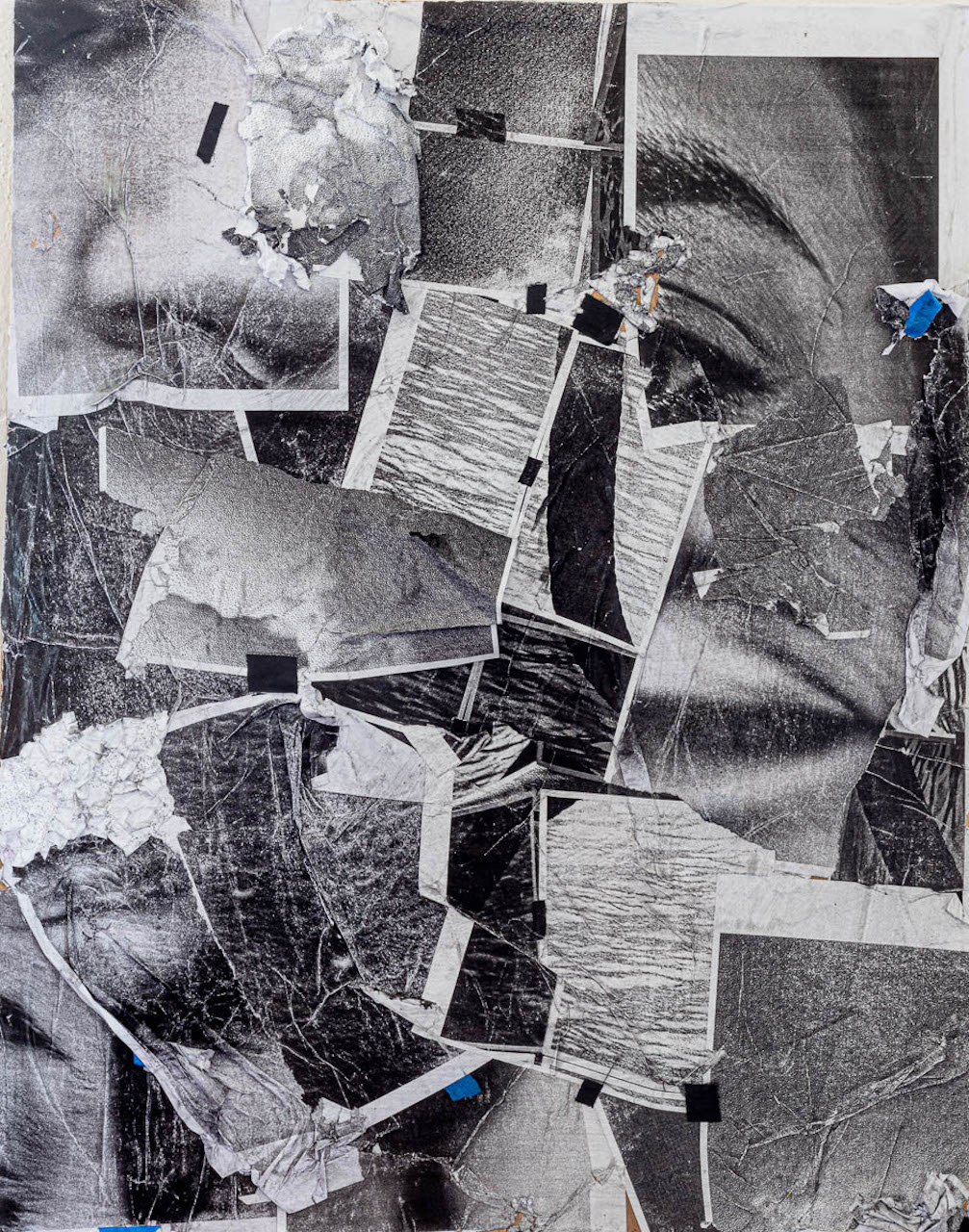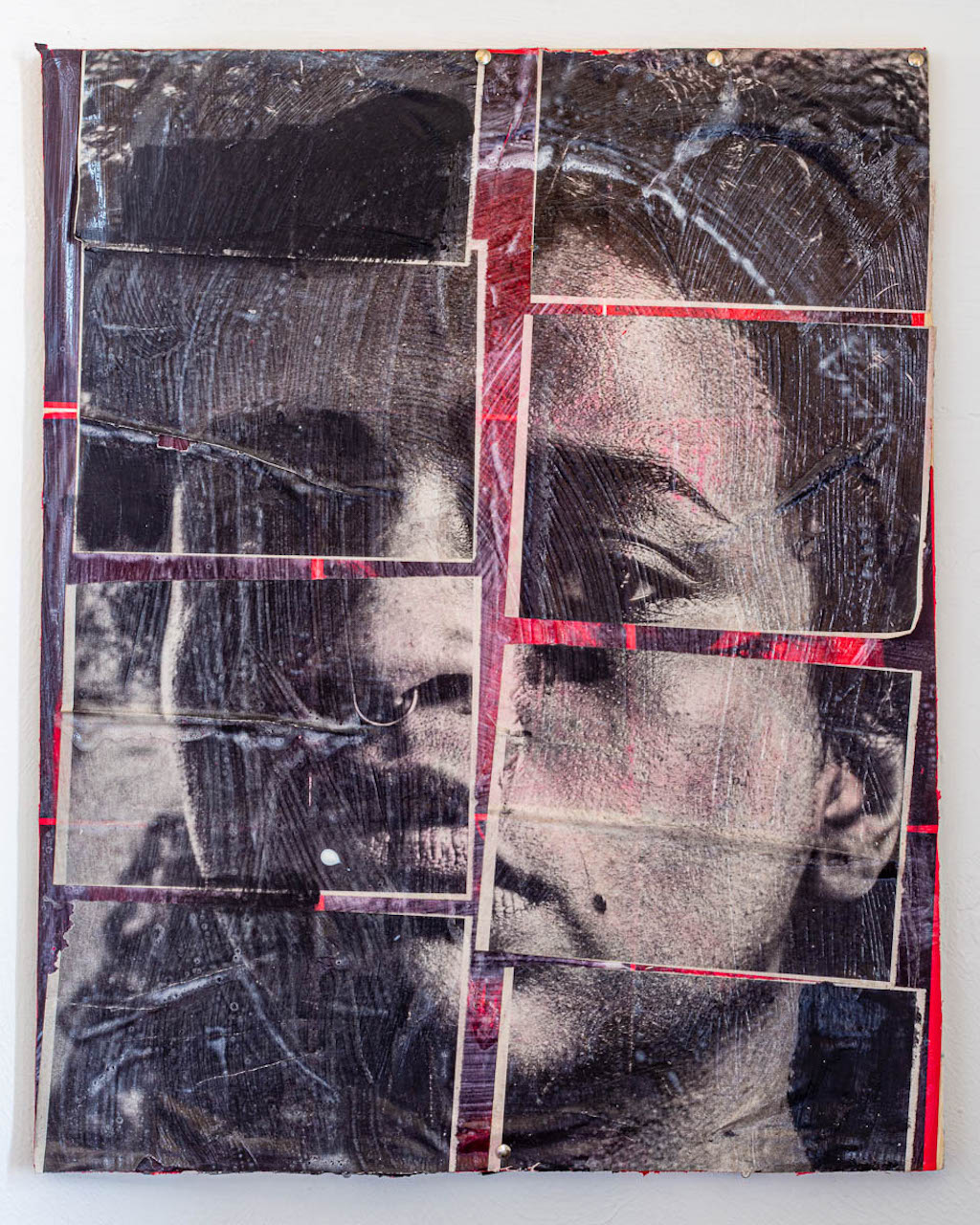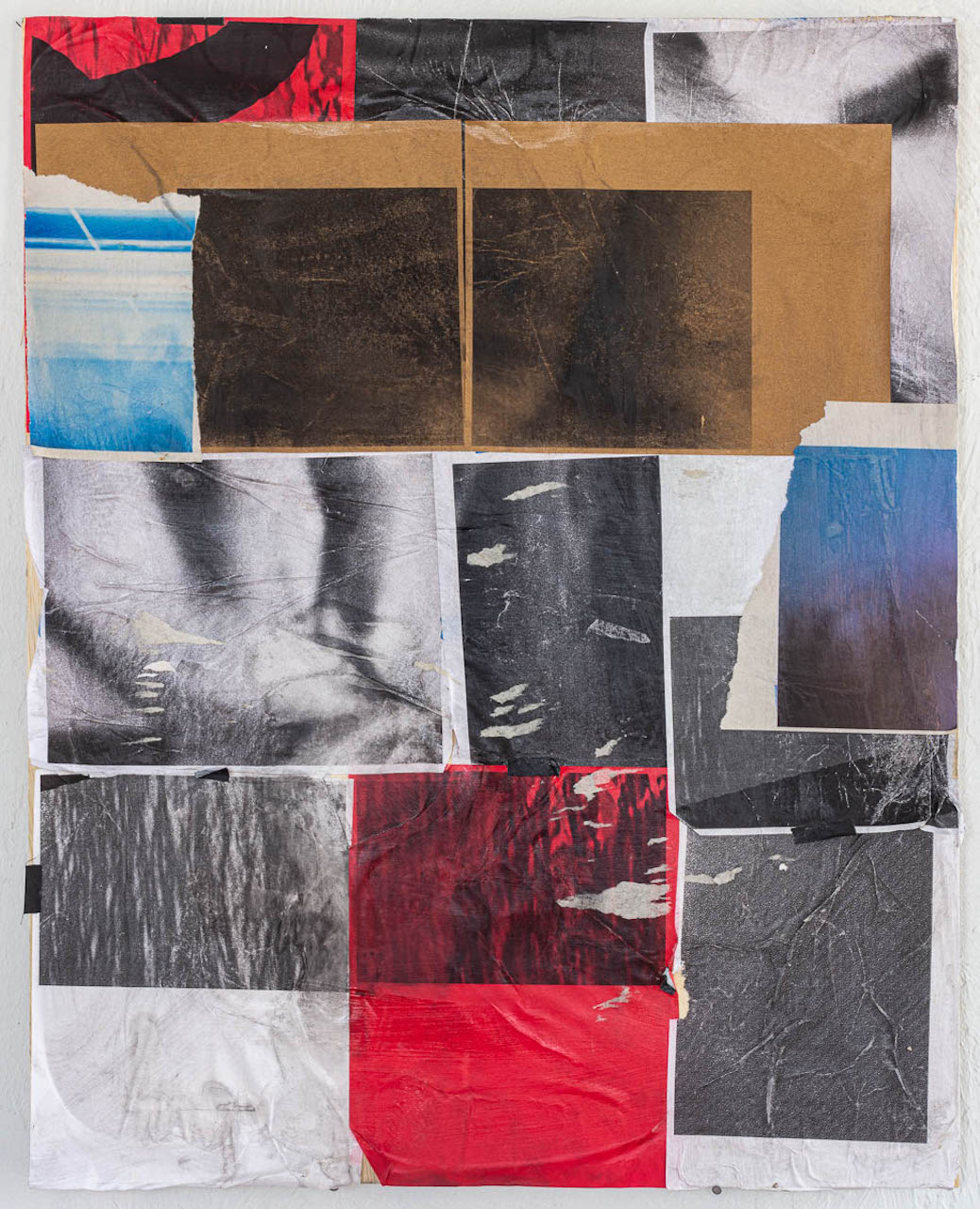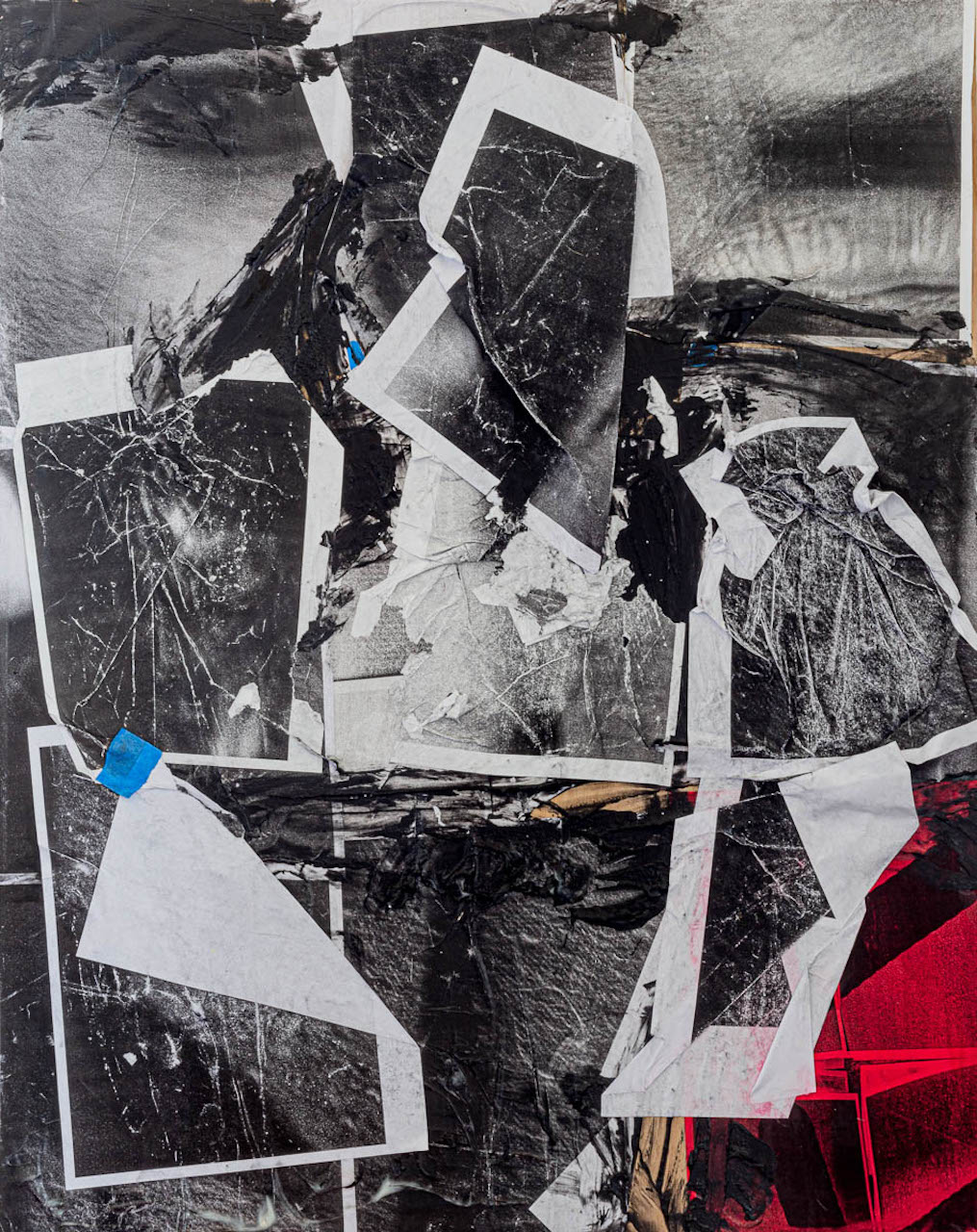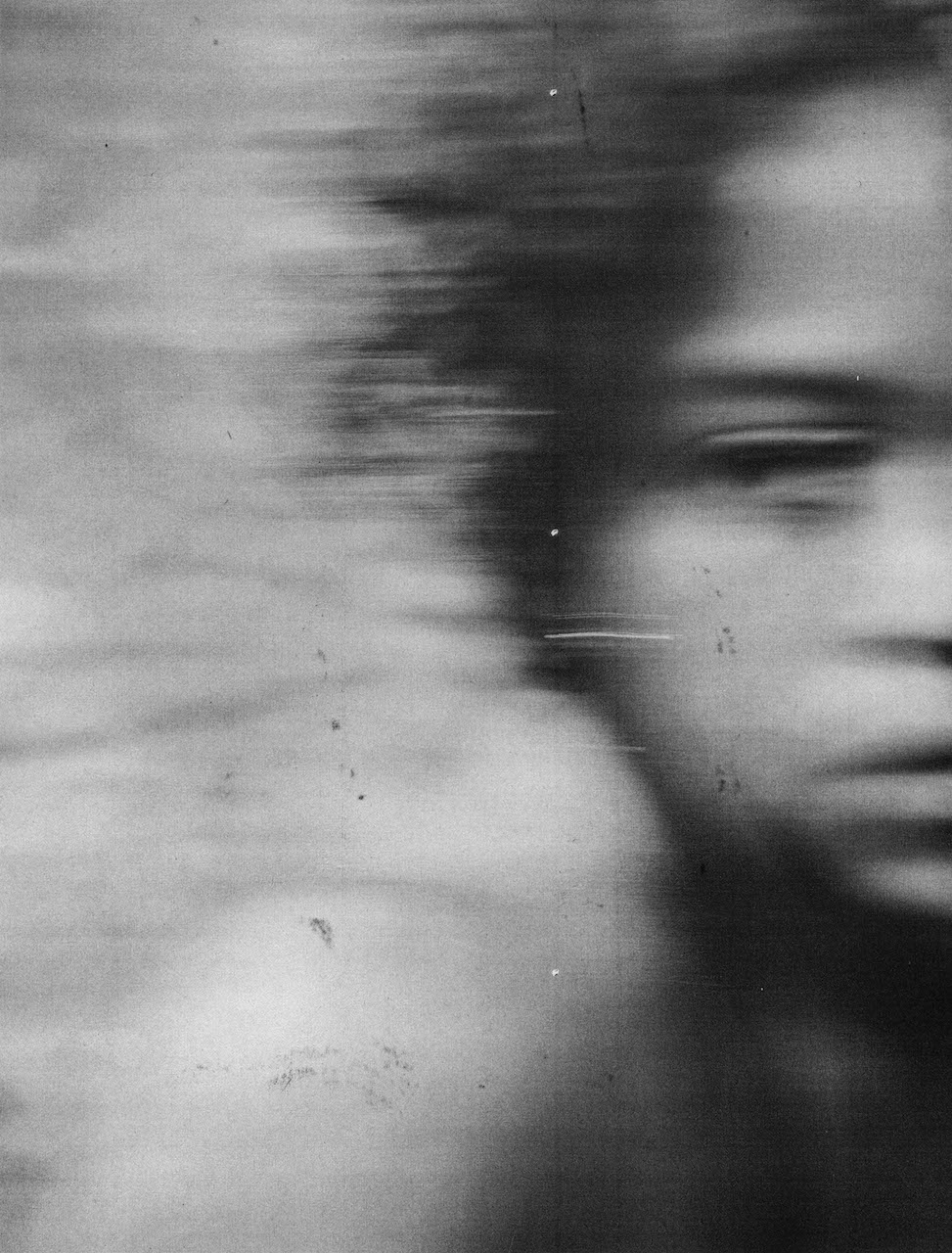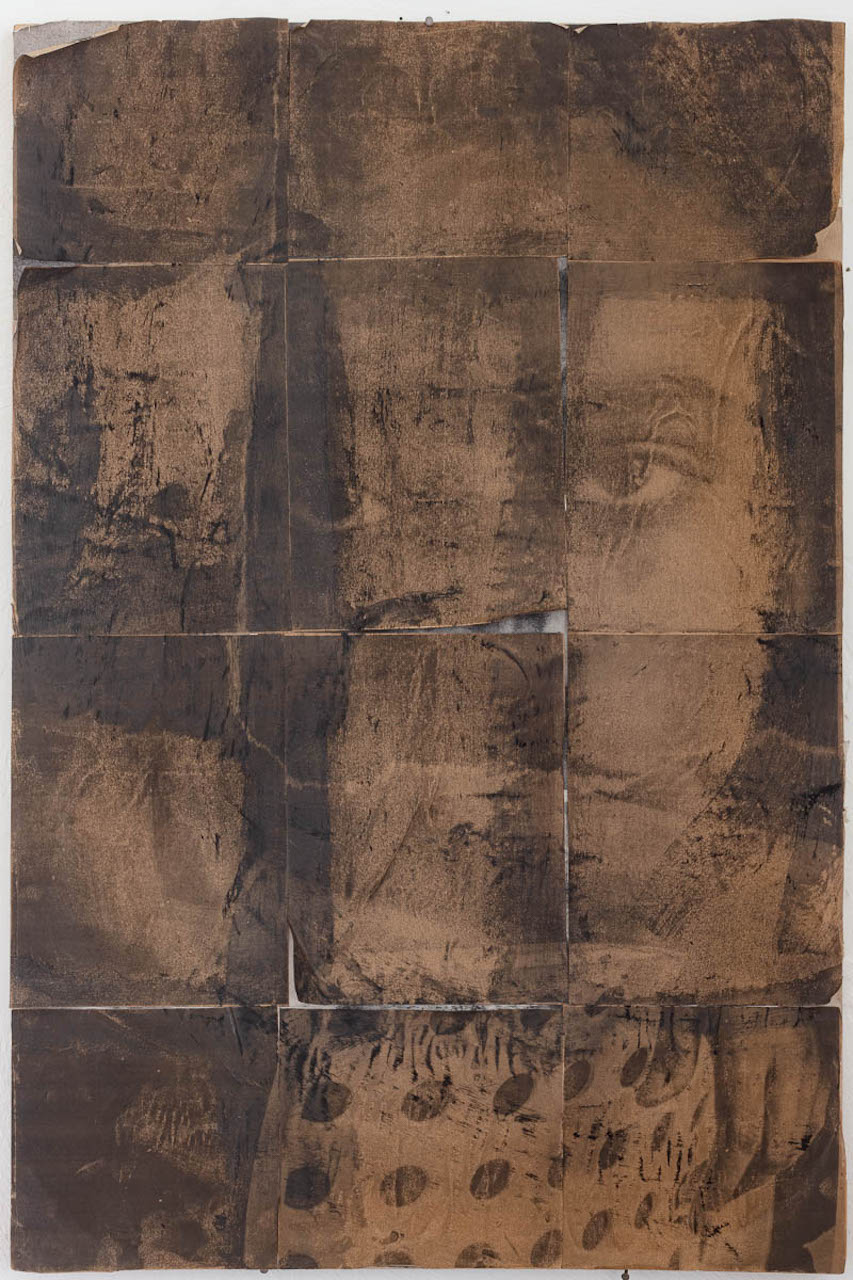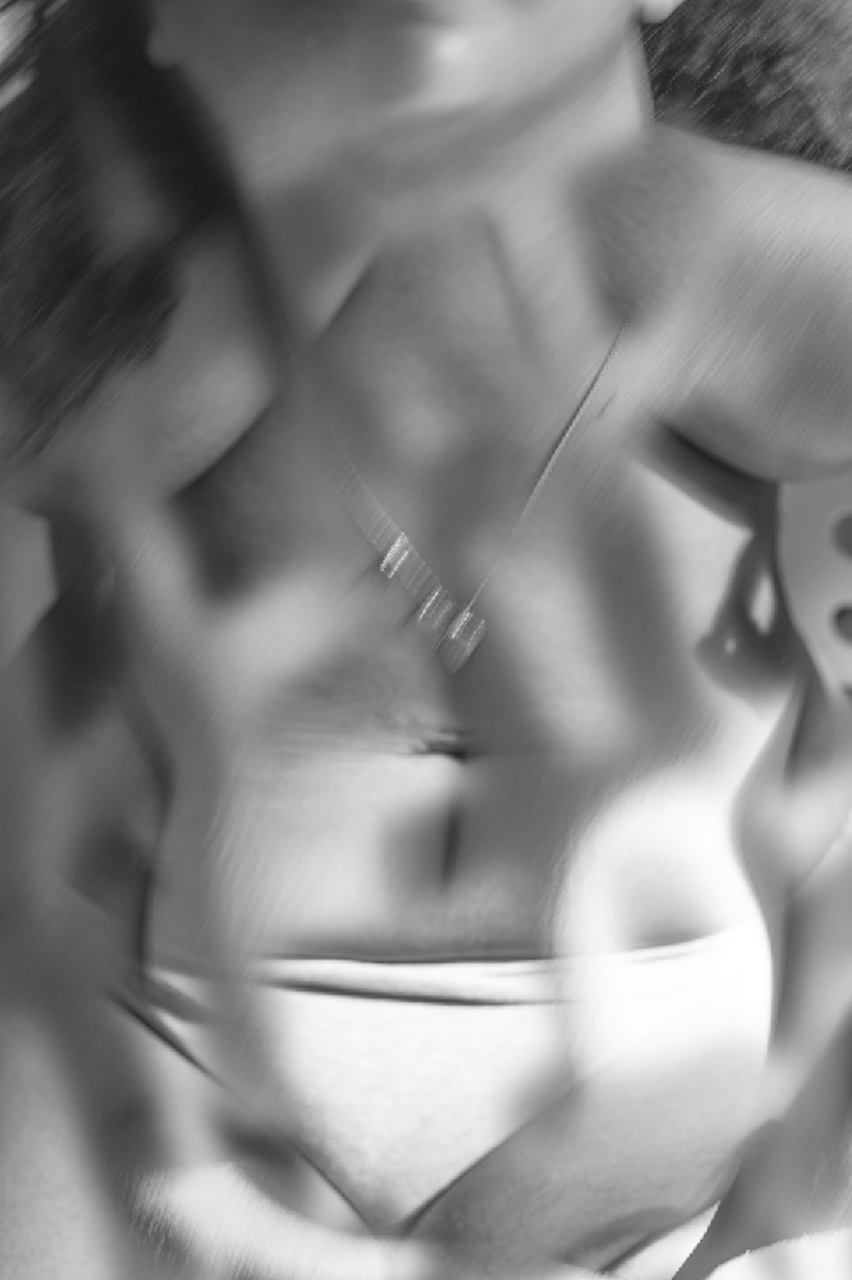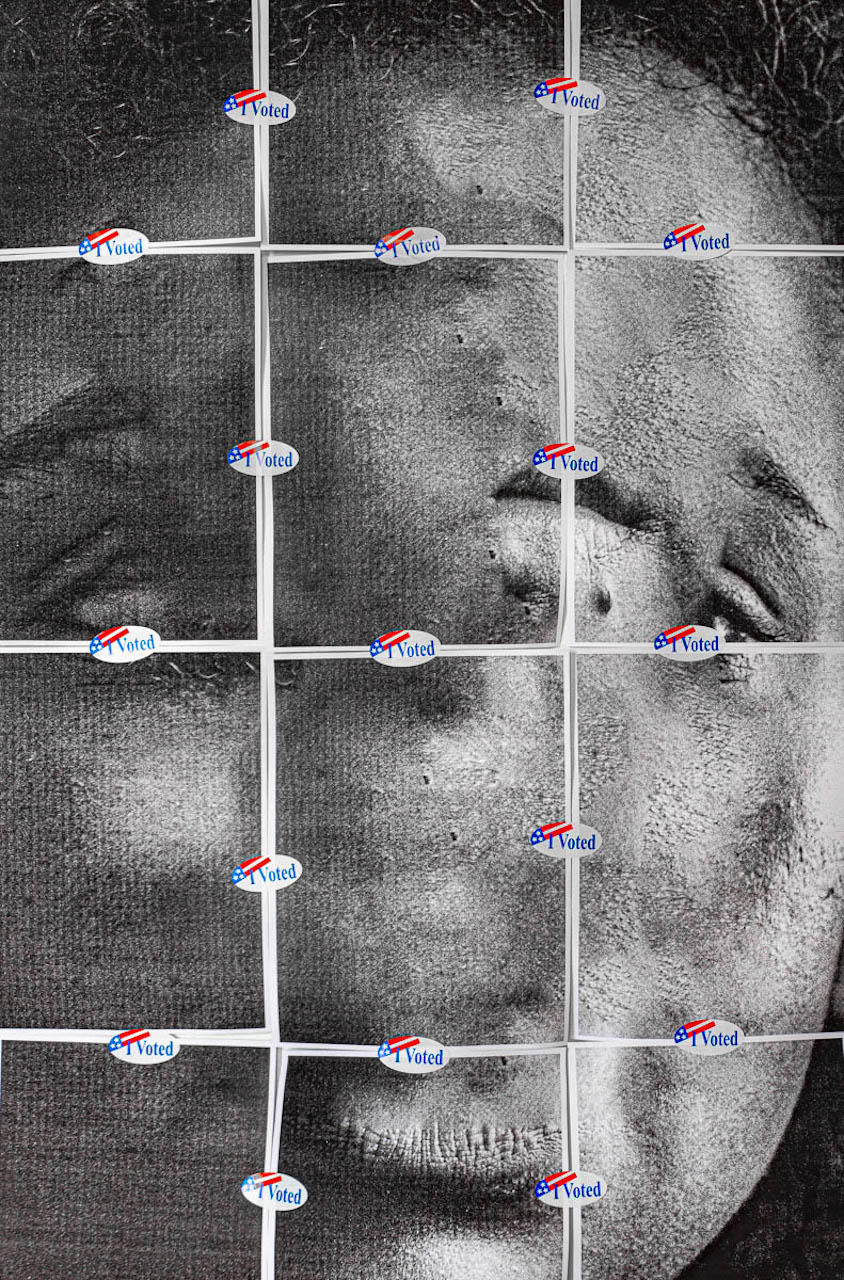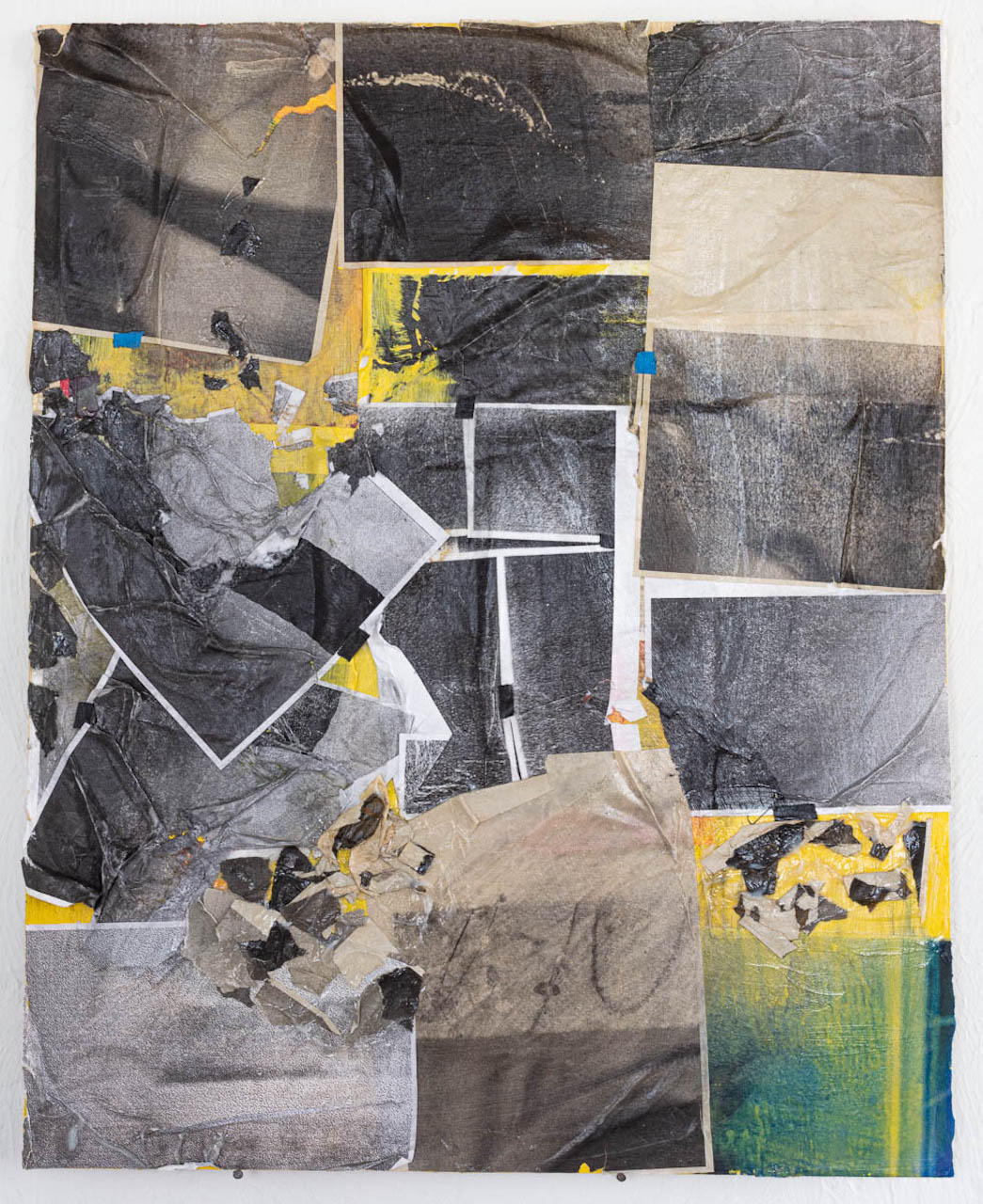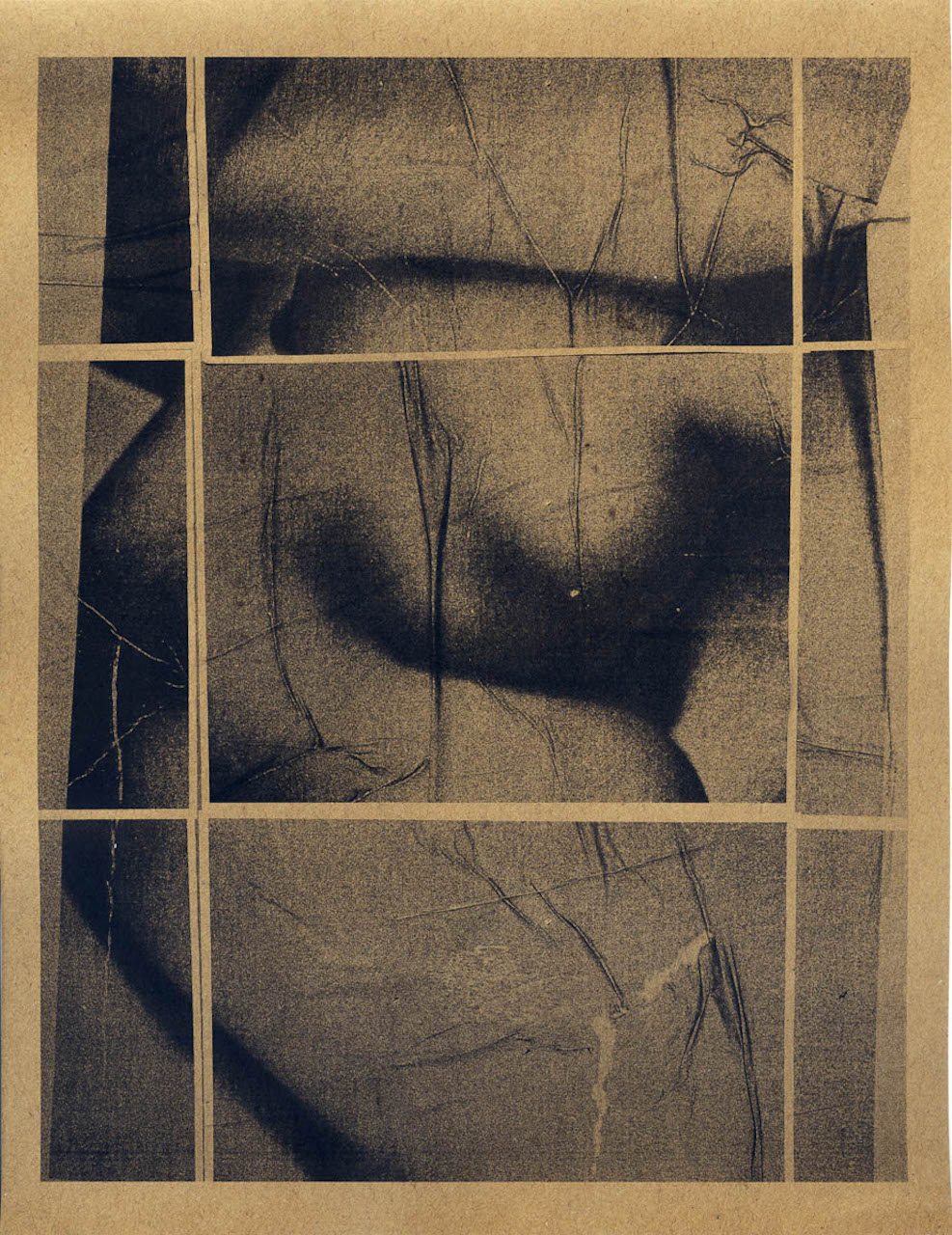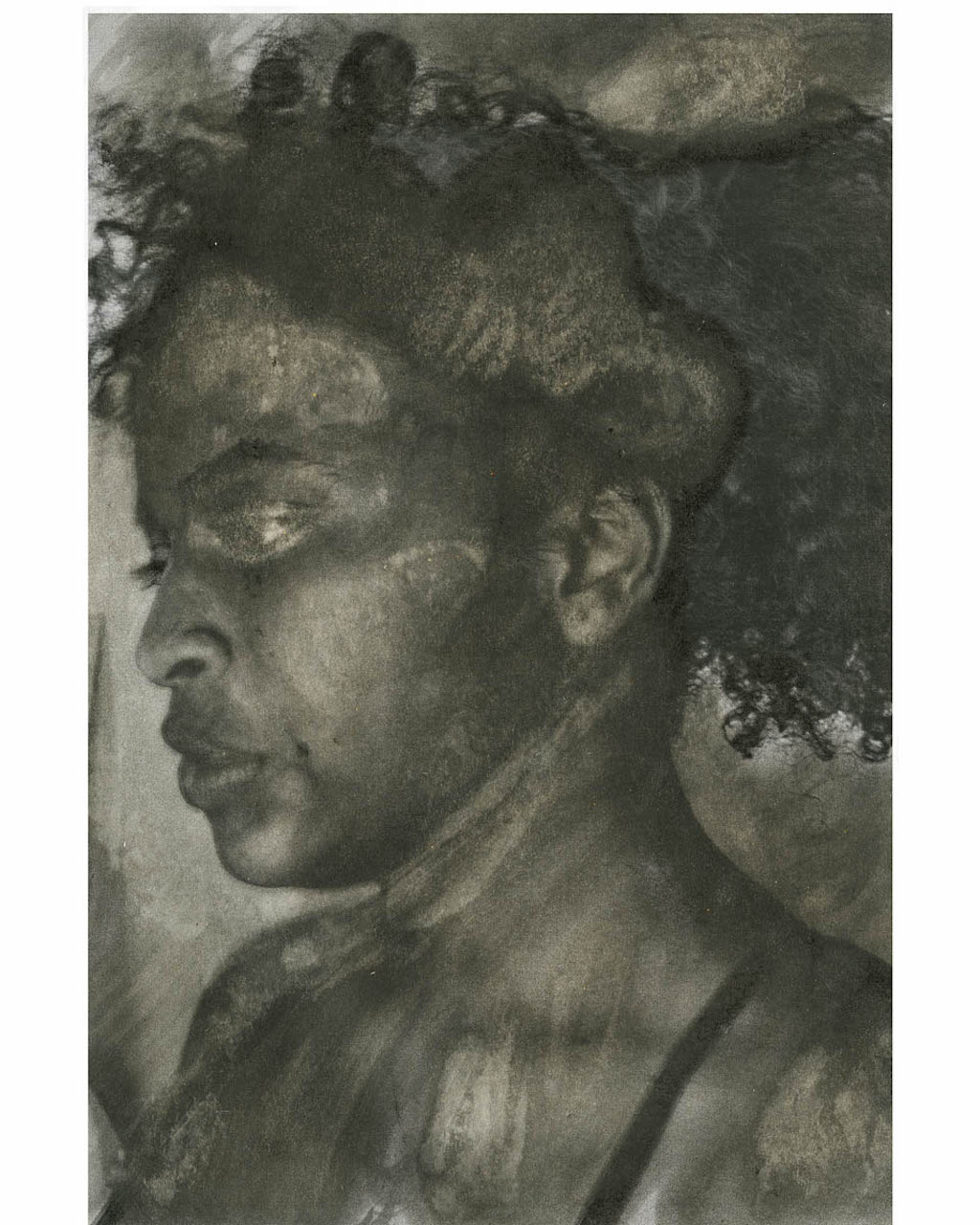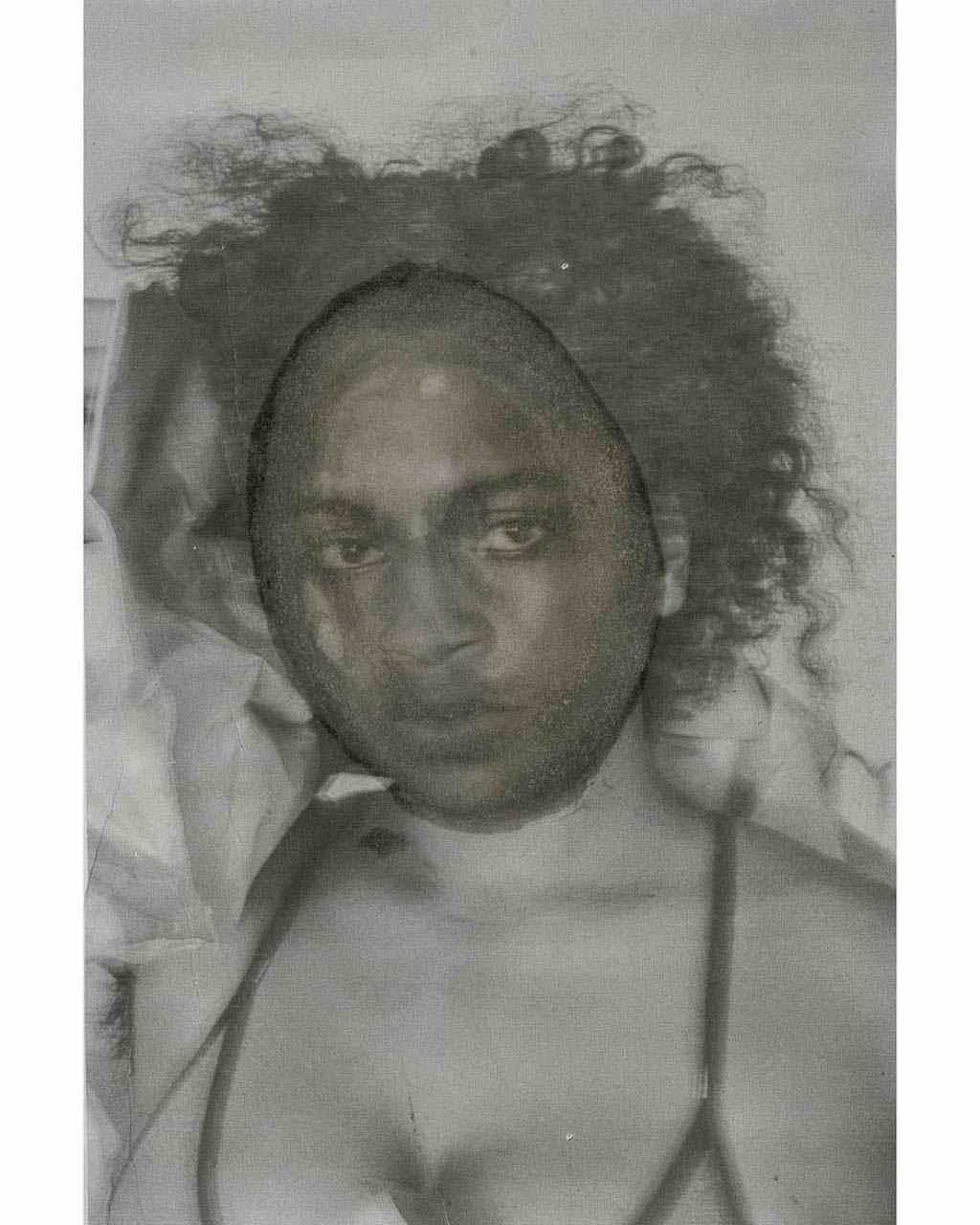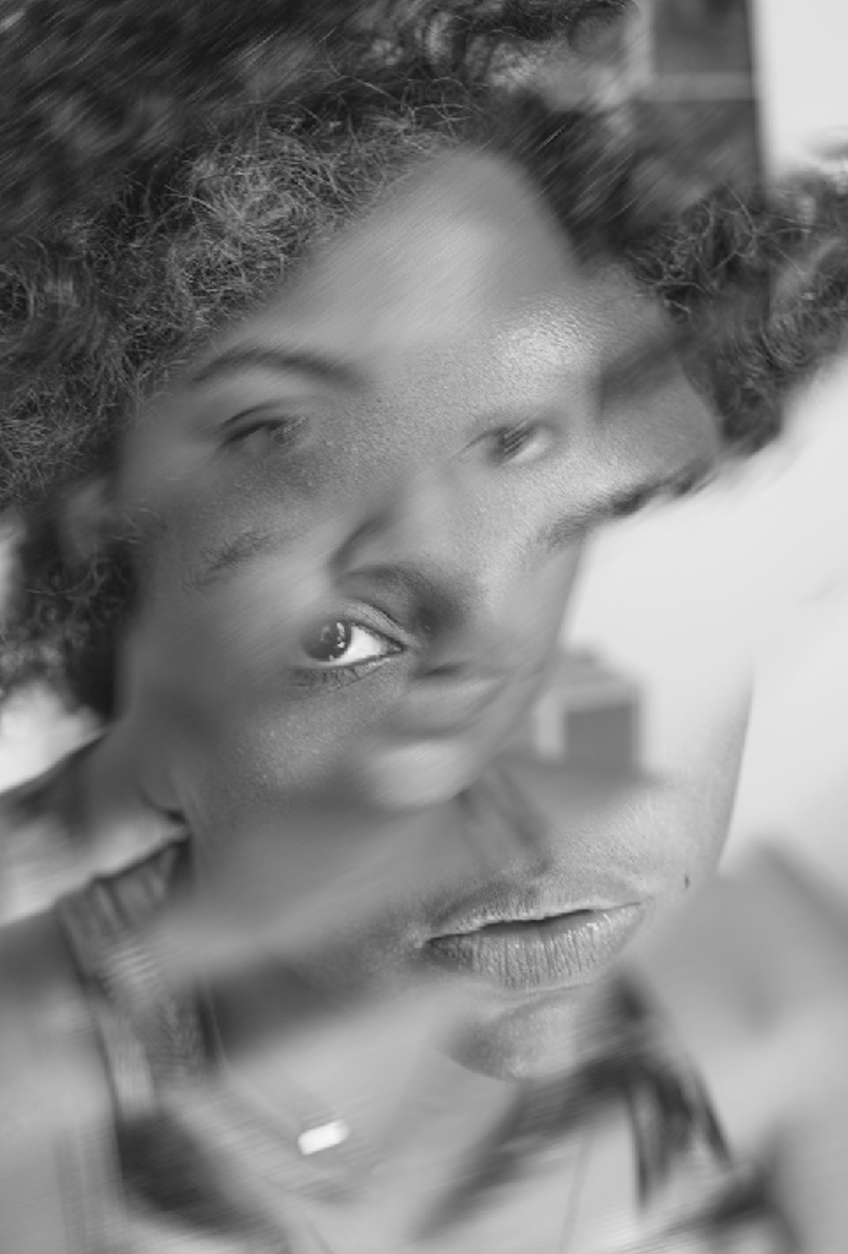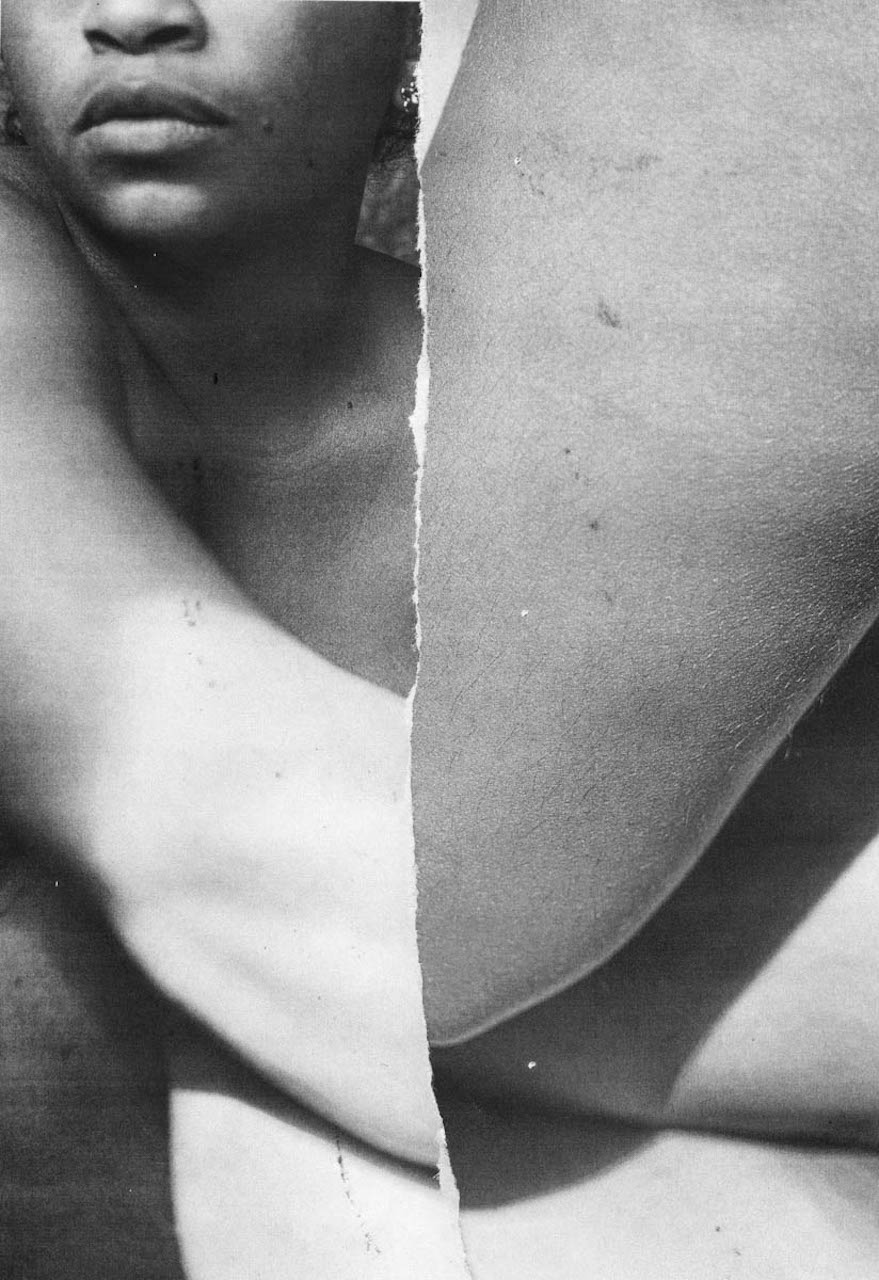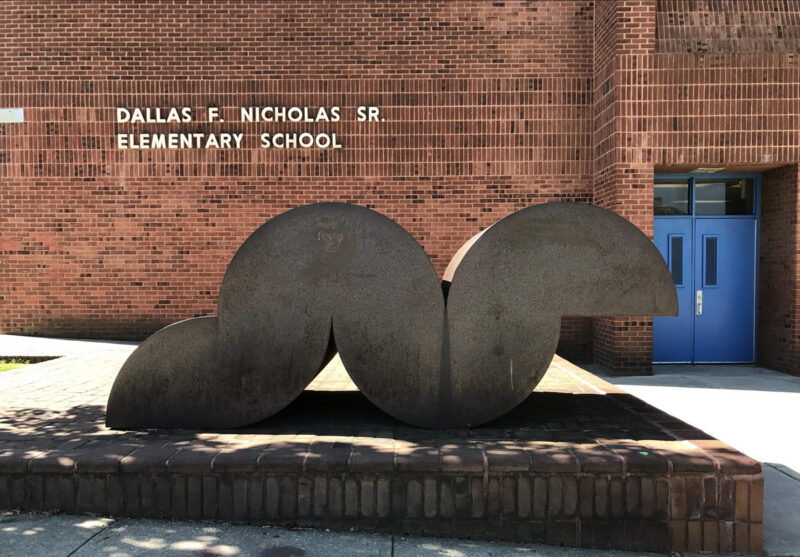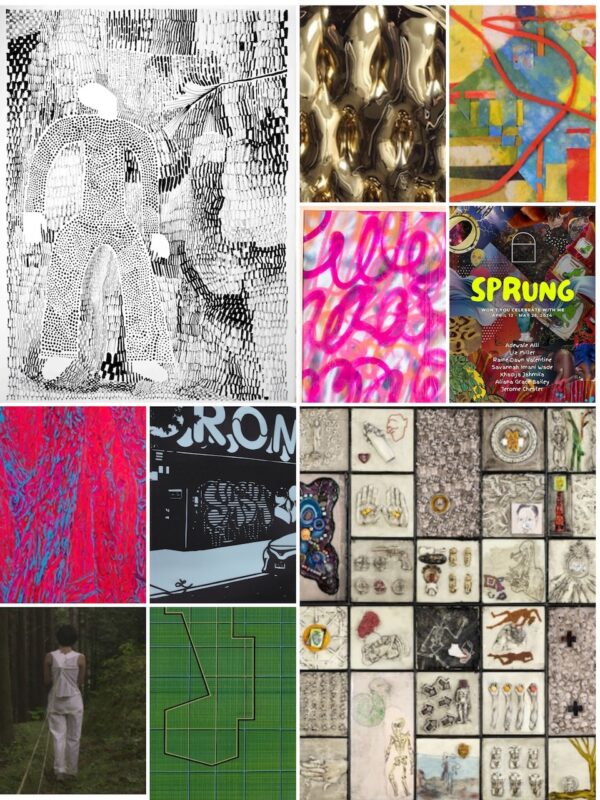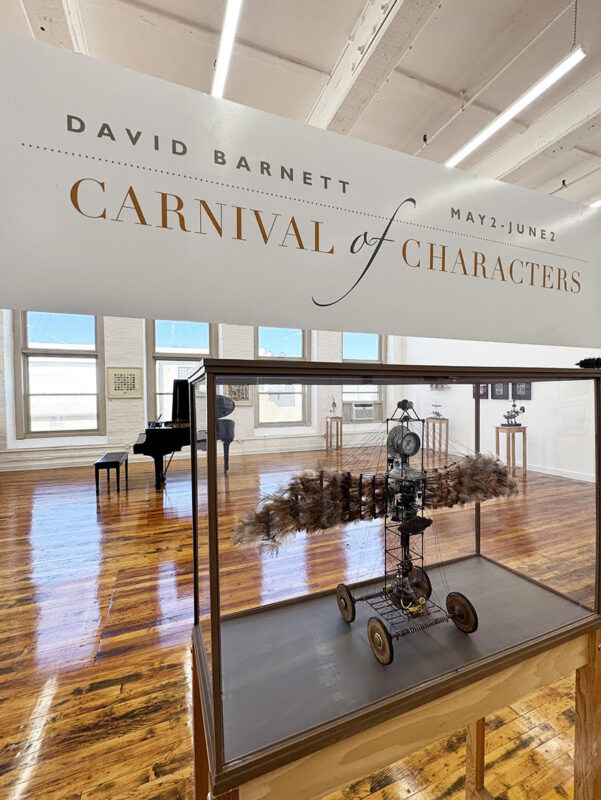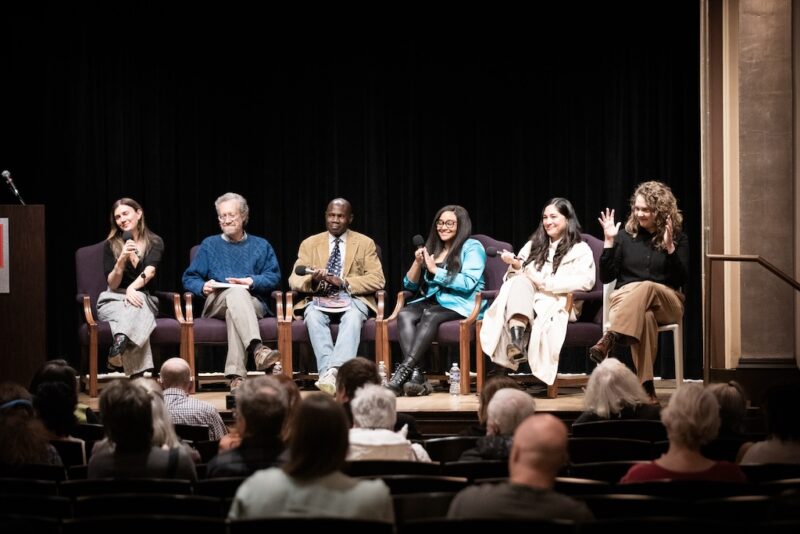Born in New York City, with Indo-Guyanese and African-American roots, Rebecca Marimutu is a contemporary photographer and interdisciplinary artist whose work explores the self, identity, and materiality, through various mediums such as photography, collage, paper sculpture, and abstraction. Marimutu, a 2020 MFA graduate from MICA’s Photographic and Electronic Media Program, is based in Baltimore. She teaches at Towson University.
I first encountered Marimutu’s artwork at Eubie Blake as a part of Repercussions: Redefining the Black Aesthetic, where she exhibited a set of two photo collages, “Portraits, Adhered” #11 and #10, 2021, which initially appeared to me as an abstract network of black, white, gray, and anchoring red tones. However, after I spent more time with them, I was able to excavate images of human fragments from the composition and realized they were collages of abstractly represented identity.
Marimutu says that her work is informed by research into critical race theory, as well as contemporary discussions around the dimensionality of the photograph, and she works by concealing, obscuring, and protecting that which lies within the frame. At the start of 2021, during a period of isolation, she started her Portraits Adhered series, using digital photography and “disrupting the material hierarchies in contemporary image and media consumption” by mounting them onto wooden boards with wheat paste, PCA glue, clear acrylic gesso, and staples. Not only does the series offer opportunities for self-examination, but it allows the artist to “expand on the sculptural potentials in photography.”
Marimutu is inspired by Lorna Simpson as well as subway advertising, and is self-referential in the most direct way so that much of the artist herself is embedded within her works. Both analog and digital, Marimutu’s photo collages reveal a process of self-discovery and self-representation through actively manipulating and reconfiguring material into sculptural figures.
